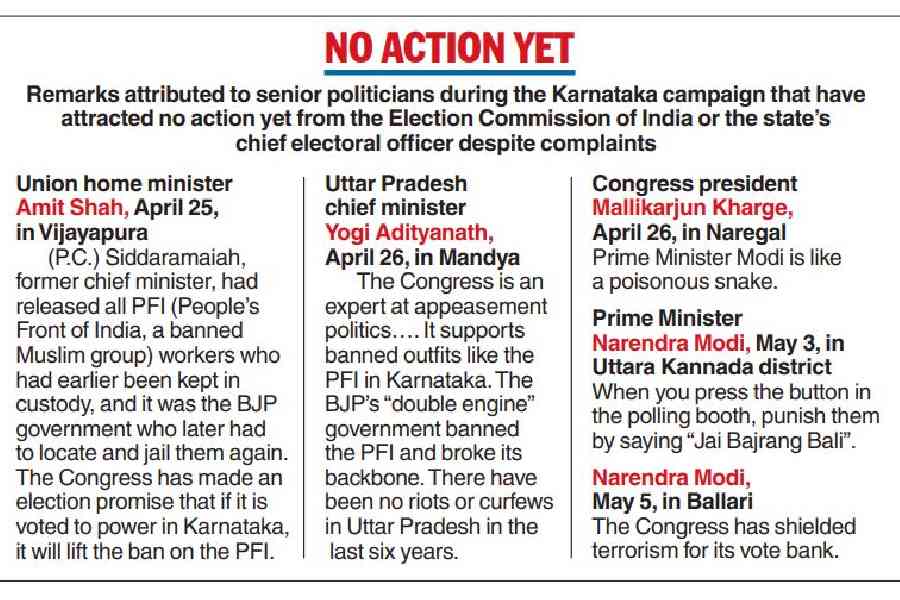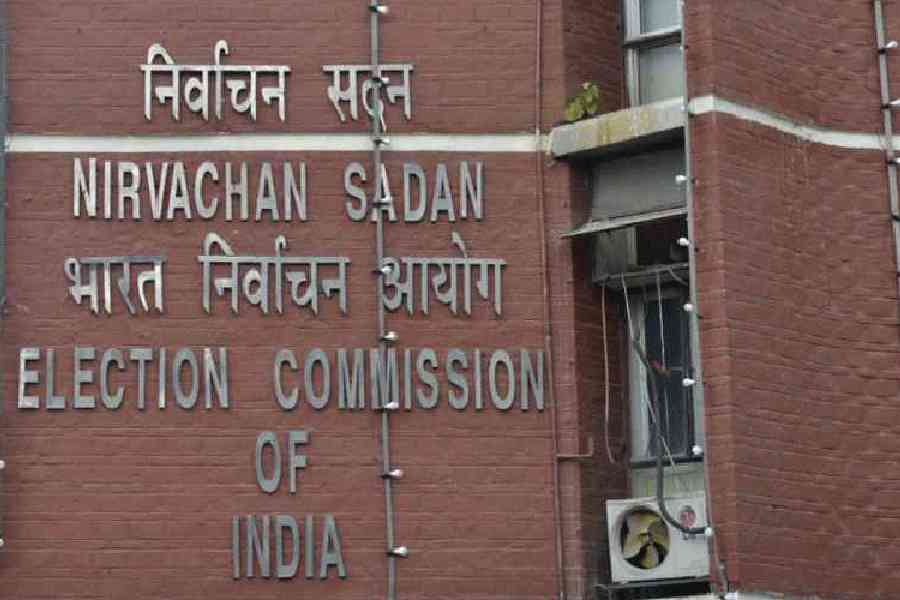Jurist G. Mohan Gopal has questioned the Election Commission’s functioning and motives, regretting that “accountability institutions are being packed with Hindu Rashtra ideological zealots” who are posing an “unprecedented challenge of subversion of the republic from within”.
The comments by Gopal, who clarified that he did not personally know anyone in the commission and that his assessment was based on their actions and inactions, came a day after the Congress accused the poll panel of violating “the concept of equality before the law and the conduct of ‘free and fair’ elections”.
The party’s allegation came in response to the commission’s showcause notice to Karnataka Congress chief D.K. Shivakumar last week, asking him to justify a party advertisement that had referred to a “corruption rate card”, allegedly in use in the state for the past four years.
In its reply, the Congress has listed 11 instances of what it calls hate speech, religious invocations to seek votes, defamation and lies, allegedly peddled by BJP leaders including the Prime Minister, other Union ministers, BJP chief ministers and the BJP president, while underscoring that the poll panel is yet to act against them.
Congress spokesperson Abhishek Singhvi claimed in the letter that the commission’s actions were “prima facie violative of Articles 14 and 21 of the Constitution” and inimical to “an even playing field”.
Gopal, a former director of the National Judicial Academy and the National Law School of India University, spoke of an “unprecedented scenario” being witnessed in the country.
“Until 2014, the concern was about the independence of accountability institutions, such as the Election Commission, being compromised by pliant officials acting as rubber stamps of the political rulers in return for patronage or reward,” he told The Telegraph on Monday. “Today we are in an entirely different and unprecedented scenario.”
He claimed: “Accountability institutions are being packed with Hindu Rashtra ideological zealots who operate autonomously to co-opt these institutions into the mission of establishing a ‘Hindu Rashtra’ without any need for directions from any political bosses — Hindu Rashtra in this context is a synonym for Savarna oligarchy.”
Neither the poll panel nor Karnataka’s chief electoral officer, Manoj Meena, has responded to this newspaper’s queries on the Congress’s allegations.

The Election Commission has sent notices to a BJP candidate, B.R. Patil, for calling Congress MP Sonia Gandhi a vishkanya (poison maiden), and to Congress candidate Priyank Kharge for using the word “nalayak” (useless) while referring to the Prime Minister. Neither has been punished.
The commission has also issued two advisories on speeches and advertisements. It has directed Meena to remain vigilant against bribery after an FIR was filed against BJP minister V. Somanna for allegedly attempting to lure a JDS candidate.
On Monday evening, the commission sent a notice to Karnataka BJP chief Nalin Kumar Kateel over two ads the party had published in newspapers on Monday, accusing the Congress of being “the most corrupt party in the world” and alleging that the Opposition party has been talking “openly about separation of Karnataka from India”.
Unlike the Congress ad, the BJP’s ad names its opponent and was published after the commission issued the advisory on advertisements.
With campaigning for the May 10 polls having ended on Monday, the commission is left without its most-used stick — banning leaders from campaigning.
Congress president Mallikarjun Kharge has been sent a notice over a tweet by his party quoting a purported “message” from Sonia Gandhi: “The Congress will not allow anyone to pose a threat to Karnataka’s reputation, sovereignty or integrity.”
The BJP has objected to the use of the word “sovereignty” in connection with a state.
Former chief election commissioners (CECs) that this newspaper contacted were unwilling to breach convention and speak in public about the poll panel’s handling of individual complaints.
T.S. Krishna Murthy, who was CEC during the 2004 Lok Sabha polls, proposed reforms to the current campaign process.
“The time has come to regulate the number of physical meetings, especially in the context of available digital options,” he said.
“Secondly, in respect of hate speeches, (the) EC should be given the power to impose monetary penalties, as in cricket competitions. The need for a separate law to regulate political parties with the power to impose penalties or disqualification has become obvious.”
O.P. Rawat, another former CEC, who has spoken out on several occasions against what he saw as government interference or poll panel overreach, took a more sympathetic view of the commission’s role.
“Elections are the most peaceful means to resolve the political conflict. Earlier it was resolved by battles, wars and genocides,” he said.
“Now most of the fights are restricted to verbal duels or complaints to the commission, with a few violent incidents scattered here and there. We should have satisfaction that democracy is functional in our country.”
S.Y. Quraishi, who was CEC between 2010 and 2012, sounded a caution, saying: “It is for the EC to see what is going on, and see to its reputation.... They should remember that they are being watched by the voters.”











